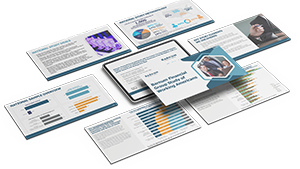
One skill that doesn’t lose value even as you age is financial literacy. Seniors struggle with maintaining a fixed income essential for comfort and increasing medical needs. They’re also increasingly vulnerable to fraud, making them the most targeted demographic by fraudsters.
Seniors also grapple with the burden of long-term planning for retirement, health, estate, and will. Financial literacy is essential to adequately prepare for a secure and comfortable future.
Protecting Against Scams
In 2022, seniors aged 60+ reported $3.1 billion in losses from scams, representing an 82% increase compared to 2021. Telemarketing scammers posing as government agency representatives for Social Security, Medicare, or the IRS push seniors to provide personal information. Swindlers also pose as tech support, offering solutions to non-existent problems.
Seniors also fall prey to online scams like phishing emails and social media frauds, which include fake profiles offering romance. Scammers entice seniors with great returns from fraudulent business opportunities like unregulated cryptocurrency and Ponzi schemes.
Avoid any business deal offering high returns or unsolicited offers that imposes a sense of urgency. If the deal is too good, think twice. Verify information through a trusted financial professional before engaging. Be wary of unexpected calls or emails. Avoid clicking on links on your emails or social media pages.
Managing Social Security Benefits
Social Security provides monthly benefits to eligible retired or disabled individuals or in the case of spousal death. How much you get depends on your earning history and age. You need a minimum number of work credits and paid Social Security taxes to qualify.
The amount you receive changes based on your age and type of benefits. You start getting full retirement benefits between the ages of 66 and 67, depending on your birth year. However, you can collect your benefits as early as 62 years, but your benefits diminish by 30% by full retirement. Delaying benefits beyond your full retirement age increases your benefits by up to 8% per year, up to a certain age limit.
For more on eligibility, benefit optimization, and claiming process, check the Social Security Administration (SSA) website. You can also use the Social Security Retirement Planner or SSA Retirement Benefits Calculator to prepare and make informed decisions.
Navigating Retirement Planning Options
Take advantage of employer-sponsored plans like 401(k)s and 403(b)s. The pre-tax contributions lower your taxable income and money grows tax-deferred until you take it out when you are 59½ or older.
You can also open a traditional or Roth IRA based on your retirement income expectations. Contributions to traditional IRAs are tax-deductible, and earnings grow tax-deferred, excellent for a lower tax bracket income after retirement. Roth IRAs work differently. You contribute after taxes and withdraw money tax-free in retirement. Choose this if you will be in a higher tax bracket during retirement.
Diversify your investment portfolio and retirement funds by investing in different asset classes. Invest in stocks for high long-term returns, bonds for lower risk and predictable income, and cash and cash equivalents for liquidity and stability. Diversification hedges against risks when one asset class performs poorly.
Contact Barnum Financial Group for expert financial advice and planning for seniors. Use the AARP Retirement Calculator for tailored recommendations to help attain your retirement goals. Check the National Endowment for Financial Education (NEFE) for personal finance and retirement planning. The Department of Labor provides valuable resources and tools for retirement planning.
Estate Planning Basics
Ensure your assets get distributed according to your wishes after your death with an estate plan. Estate planning can reduce family conflicts, protects beneficiaries, minimizes taxes, and provide you with peace of mind.
Key estate planning documents you require include a will to distribute your assets after death according to your wishes and avoid probate. A trust transfers ownership of your assets to a trustee to manage on behalf of your beneficiaries. A power of attorney grants your legal representative the authority to make financial and legal decisions on your behalf in case of incapacitation.
Discuss your estate planning wishes with trusted family members. Let them know where to get documents and other important information in case of incapacity or death to facilitate an easy transition. You can work with professional estate planners for easy preparation and execution.
It’s Never Too Late to Start Planning
Financial literacy helps seniors plan for retirement, get their estate in order, avoid scams, and achieve peace of mind concerning their future. The time to take control of your finances is now. Seek professional guidance for efficiency in planning. Start securing your future today with proper planning and knowledge.




